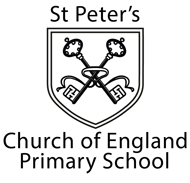English
English, communication and languages lie at the heart of our capacity to imagine, think and create and make a crucial contribution to children's development as successful learners. Their developing use of language underpins children's achievement across the curriculum and lays the foundations for active involvement in cultural life, society, work and lifelong learning.
English is a major world language and its secure and confident use opens up many possibilities. Learning and using languages enables children to engage with different cultures and societies and further develops their understanding of how languages work.
Literature in English is rich, varied and influential. It helps children to develop their imagination, see the world through the eyes of others and read and write for pleasure.
Children learn to communicate effectively in a range of media. They become increasingly fluent and accurate in expressing their thoughts and emotions, orally and in writing. They become more skilled in generating ideas, solving problems and thinking critically and creatively.
Creating and responding to all kinds of texts, including those which combine words, images and sounds, offers access to the world of knowledge and imagination and generates lasting enthusiasm and enjoyment.
We follow the National Curriculum for English. St Peter's is one of 34 English Hubs across the country and we are proud to have teachers who are experts in the teaching of reading.
Our full, personalised process for writing is detailed in the document 'Excellent Writing at St Peter's', which can be viewed below.
Phonics Scheme

We are proud to use Unlocking Letters and Sounds developed by staff at St Peter’s. Unlocking Letters and Sounds was validated by the DfE in December 2021.
Children begin learning phonics as soon as they start school. They learn and remember new sounds well. All staff benefit from training to teach phonics and reading very well. They track the progress that pupils make with precision. If pupils fall behind, they receive the help they need to enable them to catch up quickly.
Ofsted February 2023
We begin teaching phonics in the first few weeks of term 1 in Reception and children make rapid progress in their reading journey. Children begin to learn the main sounds heard in the English language and how they can be represented, as well as learning ‘Common Exception’ words for Phases 2, 3 and 4. They use these sounds to read and write simple words, captions and sentences. Children leave Reception being able to apply the phonemes taught within Phase 2, 3 and 4.
Please see below for an example of our Phase 2 GPC, picture, action, and letter formation document
In Year 1 through Phase 5a, b and c, the children learn any alternative spellings and pronunciations for the graphemes and additional common exception Words. By the end of Year 1, children will have mastered using phonics to decode and blend when reading and segment when spelling. In Year 1 all children are screened using the national phonics screening check.
In Year 2, phonics continues to be revisited to ensure mastery of the phonetic code and any child who does not meet age related expectations will continue to receive support to close identified gaps.
For further details please see below for the 'Unlocking Letters and Sounds' progression.
To ensure no child is left behind at any point in the progression, children are regularly assessed and supported to keep up through bespoke 1-1 interventions. These include GPC recognition and blending and segmenting interventions. The lowest attaining 20% of pupils are closely monitored to ensure these interventions have impact.
Click here to see an example of one of our interventions.
Reading Scheme
At St Peter's we promote a 'phonics first' approach and in both our guided reading sessions at school and in the books children take home, texts are very closely matched to a child's current phonics knowledge so that every child can experience real success in their reading.
In these crucial early stages of reading we primarily use books from Ransom Reading Stars, with whom we worked in partnership when creating Unlocking Letters and Sounds to ensure complete fidelity to the phonic progression we follow.
Once children progress beyond decodable texts, they move onto our book scheme so that they can continue to progress in their decoding, fluency and comprehension skills to become avid, expert readers.
Please see below for an introduction to how we teach reading.
Click on the link below to watch our recent parent information session:


